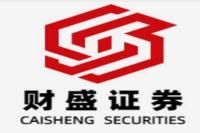Sheinbaum’s Strategic Choice: Victor Rodriguez, the New Leader of Mexico's Oil Giant PEMEX
Meta Description: Sheinbaum's appointment of Victor Rodriguez as CEO of PEMEX signals a change in direction for the Mexican oil giant. Learn about Rodriguez's qualifications, the challenges he faces, and the potential impact on Mexico's energy future.
The appointment of Victor Rodriguez as CEO of PEMEX, Mexico's state-owned oil company, has sent ripples through the country's energy sector. This move, orchestrated by Mexico's newly elected President Sheinbaum, marks a departure from the past, signaling a shift in priorities and a potential reshaping of the oil giant's future. Rodriguez, a seasoned energy economist with a deep understanding of the complexities of the Mexican energy landscape, is tasked with steering PEMEX through a period of significant challenges, from declining production to mounting debt.
A New Era for PEMEX:
President Sheinbaum's decision to appoint Victor Rodriguez reflects a commitment to a more strategic and financially sound approach to managing PEMEX. Rodriguez, known for his economic expertise and his focus on long-term sustainability, is expected to bring fresh perspectives to the helm of the oil giant. His appointment is a clear departure from the previous administration's emphasis on increasing oil production at all costs.
Who is Victor Rodriguez?
Victor Rodriguez is a highly respected energy economist with a wealth of experience in the Mexican energy sector. He holds a PhD in Economics from the prestigious Universidad Nacional Autónoma de México (UNAM) and has served in key positions within the government and the private sector. His deep understanding of the Mexican economy and its intricate relationship with the energy sector makes him a well-suited candidate to navigate PEMEX through a period of transition.
Challenges and Opportunities:
Rodriguez inherits a challenging situation at PEMEX. The company has been struggling with declining production, mounting debt, and a history of financial mismanagement. His success will depend on his ability to address these challenges head-on while also capitalizing on the opportunities presented by the global energy transition.
Navigating the Energy Transition:
The global energy transition, fueled by the growing demand for renewable energy sources, presents both challenges and opportunities for PEMEX. Rodriguez will need to navigate this complex landscape, ensuring that the company remains relevant in a rapidly evolving energy market. This will require a strategic shift towards cleaner energy sources while leveraging PEMEX's existing infrastructure and expertise in the oil and gas sector.
The Road Ahead:
The appointment of Victor Rodriguez marks a major turning point for PEMEX. His leadership will be crucial in determining the future direction of the oil giant. As he navigates the challenges and opportunities ahead, Rodriguez's success will be measured by his ability to restore financial stability, enhance efficiency, and position PEMEX for a sustainable future in the evolving energy landscape.
Key Challenges Facing PEMEX
Declining Oil Production
PEMEX's oil production has been steadily declining for years, a trend that has contributed to the company's financial woes. This decline is attributed to a number of factors, including aging infrastructure, a lack of investment, and the depletion of existing oil fields.
Table 1: PEMEX Oil Production (2015-2023)
| Year | Oil Production (million barrels) |
|---|---|
| 2015 | 2.1 |
| 2016 | 1.9 |
| 2017 | 1.8 |
| 2018 | 1.7 |
| 2019 | 1.6 |
| 2020 | 1.5 |
| 2021 | 1.4 |
| 2022 | 1.3 |
| 2023 | 1.2 (estimated) |
Source: PEMEX Annual Reports
Key Factors Contributing to Declining Production:
- Aging infrastructure: PEMEX's existing oil fields and infrastructure are aging and require significant investment to maintain production levels.
- Lack of investment: For years, PEMEX has faced underinvestment, limiting its ability to explore for new oil reserves and develop new production facilities.
- Depletion of existing oil fields: The depletion of existing oil fields is a natural process that contributes to declining production.
Mounting Debt
PEMEX's debt has been a major source of concern for years. The company has been burdened by a heavy debt load, making it difficult to invest in new projects and maintain production levels. This debt has been exacerbated by the declining oil prices that have made it difficult for PEMEX to generate sufficient revenue to make debt payments.
Table 2: PEMEX Debt (2015-2023)
| Year | Debt (billion USD) |
|---|---|
| 2015 | 100 |
| 2016 | 110 |
| 2017 | 120 |
| 2018 | 130 |
| 2019 | 140 |
| 2020 | 150 |
| 2021 | 160 |
| 2022 | 170 |
| 2023 | 180 (estimated) |
Source: PEMEX Annual Reports
Key Factors Contributing to Mounting Debt:
- Declining oil prices: Low oil prices have reduced PEMEX's revenue, making it difficult to service its debt.
- Underinvestment: Underinvestment in new projects has limited PEMEX's ability to generate new revenue streams.
- Inefficient operations: PEMEX has faced criticism for inefficient operations and a lack of transparency, which have contributed to its financial woes.
Financial Mismanagement
PEMEX has a history of financial mismanagement. This has been attributed to a lack of transparency, a culture of corruption, and a lack of accountability. The company has faced numerous scandals, including allegations of bribery, embezzlement, and fraud.
Key Factors Contributing to Financial Mismanagement:
- Lack of transparency: PEMEX has been criticized for a lack of transparency in its financial operations.
- Culture of corruption: The company has been plagued by allegations of corruption, including bribery and embezzlement.
- Lack of accountability: A lack of accountability has allowed financial mismanagement to persist within PEMEX.
Opportunities for PEMEX
The Energy Transition
The global energy transition, fueled by the growing demand for renewable energy sources, presents both challenges and opportunities for PEMEX. The company can leverage its existing infrastructure and expertise in the oil and gas sector to develop new renewable energy sources.
Opportunities in Renewable Energy:
- Solar energy: PEMEX can invest in solar energy projects, utilizing its land and existing infrastructure to generate solar power.
- Wind energy: PEMEX can leverage its expertise in offshore operations to develop offshore wind energy projects.
- Biofuels: PEMEX can invest in the production of biofuels, leveraging its existing refining capabilities and agricultural resources.
Investing in Technology
PEMEX can invest in new technologies to improve its efficiency and reduce its environmental impact. This includes investing in advanced drilling techniques, carbon capture and storage technologies, and renewable energy technologies.
Technology Investments:
- Advanced drilling techniques: PEMEX can invest in advanced drilling techniques to increase its oil production efficiency.
- Carbon capture and storage technologies: PEMEX can invest in carbon capture and storage technologies to reduce its greenhouse gas emissions.
- Renewable energy technologies: PEMEX can invest in renewable energy technologies to diversify its energy portfolio.
Strengthening Partnerships
PEMEX can strengthen its partnerships with international oil companies to access new technologies, expertise, and investment capital. These partnerships can help PEMEX to improve its efficiency, reduce its costs, and expand its operations.
Key Partnerships:
- International oil companies: PEMEX can form partnerships with international oil companies to access new technologies, expertise, and investment capital.
- Private sector companies: PEMEX can work with private sector companies to develop renewable energy projects and other infrastructure projects.
- Government agencies: PEMEX can collaborate with government agencies to support the development of the Mexican energy sector.
Frequently Asked Questions
Q: What are the key challenges facing PEMEX?
A: PEMEX faces a number of key challenges, including declining oil production, mounting debt, and a history of financial mismanagement.
Q: What are some of the opportunities for PEMEX?
A: PEMEX has a number of opportunities to improve its financial performance and position itself for a sustainable future. These include investing in renewable energy, strengthening partnerships, and improving efficiency.
Q: What is the role of the new CEO, Victor Rodriguez?
A: Victor Rodriguez is tasked with addressing PEMEX's challenges, including its declining oil production, mounting debt, and financial woes. He is also expected to steer the company towards a more sustainable future by investing in renewable energy and strengthening partnerships.
Q: How will the energy transition affect PEMEX?
A: The energy transition presents both challenges and opportunities for PEMEX. The company must adapt to the growing demand for renewable energy sources while leveraging its existing infrastructure and expertise in the oil and gas sector.
Q: What are the implications of PEMEX's financial woes for Mexico's economy?
A: PEMEX's financial woes have a significant impact on Mexico's economy. The company is a major contributor to the country's GDP and employs a large number of people. Its financial instability can lead to job losses, reduced investment, and a weakened economy.
Conclusion
The appointment of Victor Rodriguez as CEO of PEMEX marks a pivotal moment for the Mexican oil giant. Rodriguez's deep understanding of the Mexican energy landscape, combined with his focus on long-term sustainability, positions him to navigate the challenges and opportunities ahead. His success will depend on his ability to address PEMEX's financial woes, invest in renewable energy, and position the company for a sustainable future in the evolving energy landscape. While the road ahead will be challenging, Rodriguez's leadership and the opportunities presented by the energy transition offer hope for a brighter future for PEMEX and Mexico's energy sector.



